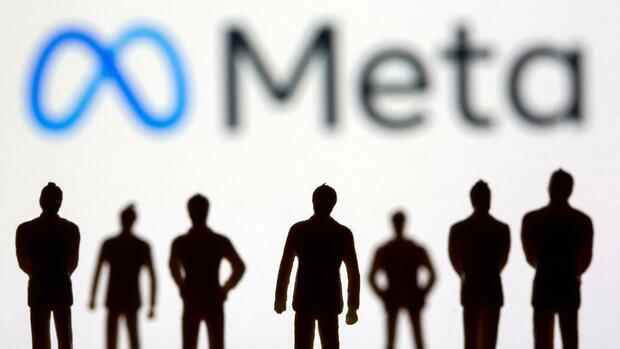Munich Silicon Valley reacted quickly to Vladimir Putin’s war terror. The Google parent company Alphabet stopped the Russian state broadcaster RT and other media controlled by Moscow: They should no longer be able to earn a lot of money with advertising on the Alphabet subsidiaries Google or YouTube. A company spokesman commented that the new developments are being observed and that further steps will be taken if necessary.
The Facebook group Meta Platforms also decided to ban advertising against Russia’s state media – their accounts would be “demonetarized” as quickly as possible. And, of course, intensify the search for fake news in Russia and Ukraine.
The actions of the two US giants are economically significant – Alphabet is by far the world’s largest media group with a proportionate turnover of 159.8 billion dollars. Number three in the industry is Mark Zuckerberg’s Facebook parent company Meta Platforms with around 75 billion dollars. The figures come – with the 2020 financial year as a basis – from the book “Who dominates the media?”, which has now been published in its second edition. It shows the growing importance of tech companies in many places. They take over the classic media business worldwide.
The large, traditional, vertically integrated media groups with their TV stations, radio stations, publishers, film studios, music departments, theme parks and computer game providers are being “increasingly pushed aside by new knowledge and data groups,” write the editors Lutz Hachmeister, Christian Wagener and Till Wäscher. This is happening parallel to a “breathtaking consolidation of the US media market” with a number of “mega mergers”.
Top jobs of the day
Find the best jobs now and
be notified by email.
On the one hand, according to the authors’ analysis, the giants of the online industry – Google, Apple, Facebook, Amazon, Microsoft and Netflix – are competing with the established media houses for advertising market shares by assiduously collecting user data.
On the other hand, they also invested heavily in the production of content themselves, from streaming series on Apple+ to online shows on Facebook Watch or the intended purchase of the Hollywood studio MGM by Amazon.
China could replace the USA as the most important cinema market
As a result of this trend, five Chinese media providers can already be found among the top 25. The top-selling group from the Far East is Tencent Holdings with the successful “WeChat” app and a voluminous games business. According to the book, Tencent has risen to become the world’s largest games publisher in a very short time “after an unprecedented international shopping spree”.
Shanghai and Beijing have managed to become “the new centers of the media group world” that indirectly control the content of “Western” films and games, which also determine mass taste in China. The People’s Republic will soon replace the USA as the most important cinema market.
In the ranking, Bertelsmann SE, as the largest German media company (sales: 17.29 billion dollars), only appears in 19th place. A newcomer like Netflix has long since passed and is now in 16th place with $21.89 billion in revenue.
In 1995, the Gütersloh-based company, second on this list, was still in close contact with the world leaders, but the Internet boom is having a negative impact on the balance sheet of the German media group. The German company is only still in the top 20 thanks to the world market leadership of the book subsidiary Penguin Random House, the international music rights business and the profitable RTL television group.
Alongside Lagardéré (Hachette, “Paris Match”) from France and Advance Publications (“Vogue”, “Vanity Fair”), Bertelsmann is the only top media group with a significant print business. You don’t have to be a psychic to see Baidu of China and others passing by. The author’s bitter conclusion: “The German media industry, as can be empirically determined, is slowly but surely disintegrating – at least as far as its international standing is concerned.”
ARD and BBC with more budget than Netflix
25 years ago, there were still eight local giants among the top 50 in the global media world, such as the Kirch Group, Axel Springer and Bauer. Today, alongside Bertelsmann, only ARD, which lives on contributions from citizens, can be found here. But the public service broadcasters are generally under great pressure because of a bloated organizational structure. ARD and BBC, with annual budgets of 6.5 billion euros, still have more money than international challengers such as Netflix or Discovery, write the book authors – “one just wonders how much longer”.
Looking back at the early years of private television, when entrepreneurs like Leo Kirch, Silvio Berlusconi and Reinhard Mohn dominated the industry, is only nostalgic. Of the old “media tsars” of the 20th century, only 90-year-old Rupert Murdoch with his company News Corp./Fox is represented in the top 20, even if he has his Hollywood studio at Disney and his pay-TV Business Sky sold to the US cable company Comcast.
According to the authors, it is no longer dominated by the media patriarch, but by the “type of futurological investor” à la Peter Thiel, who pushed companies like Facebook, PayPal and Palantir on.
However, the media market is still dominated by men. The average manager is over 50 years old, white and very wealthy. In the ranking of the top 50, there are actually only two women and two non-white men in the league of CEOs.
More: RTL bosses in an interview: “We have opportunities that are hardly feasible for Netflix”
